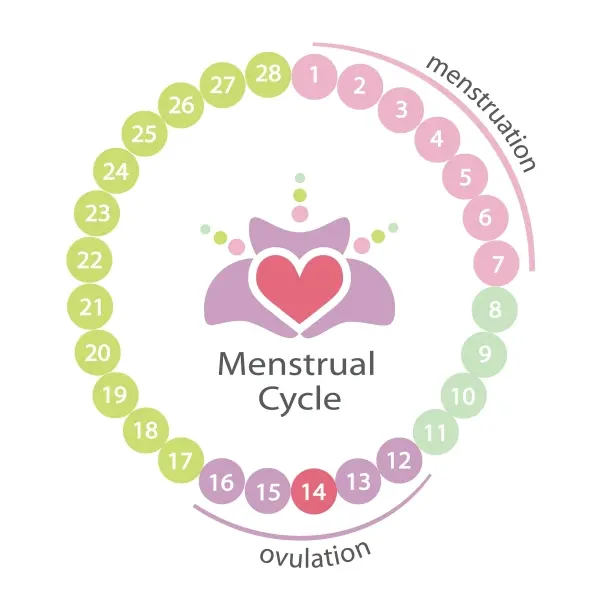You are browsing content specific to your location, some treatments may not be available:
You are browsing content specific to your location, some treatments may not be available:
Increase your chances of successful conception by understanding your ovulation cycle. Our Ovulation Date Calculator & Calendar is a valuable tool designed to help you pinpoint your most fertile days.
Are you wondering if you’re fertile? Here are key indicators:
Regular Menstrual Cycle: Consistency in your cycle suggests regular ovulation, a crucial factor for conception.
Previous Pregnancies: Conceiving before, especially if you’re under 40, is a positive fertility sign.
Ovulation Tracking: Successfully monitoring your cycle’s length and predictability indicates fertility, facilitated by an ovulation calendar or calculator.
This tool aids in identifying your ovulation period, enhancing your understanding of the most fertile days each month.

Our ovulation calendar estimates your ovulation based on your last menstrual cycle and the average days between periods. It counts back 14 days from the next expected period to determine the likely ovulation date and calculates the fertile window, which may extend a few days before and up to one day after ovulation.
Recognizing signs of ovulation is crucial:
Boost your chances of getting pregnant faster with these tips:
Embark on your conception journey with confidence using our Ovulation Date Calculator & Calendar and implementing these practical tips.
Research sites that support the information provided in the article:
1. American Pregnancy Association. (2021). How to Track Ovulation. Retrieved from https://americanpregnancy.org/getting-pregnant/ovulation-tracking/
2. Mayo Clinic. (2021). Ovulation signs: What to look for. Retrieved from https://www.mayoclinic.org/healthy-lifestyle/getting-pregnant/in-depth/…
3. Stanford, J. B., White, G. L., & Hatasaka, H. H. (2002). Timing intercourse to achieve pregnancy: current evidence. Journal of Obstetrics and Gynaecology Canada, 24(10), 815-823. https://doi.org/10.1016/s1701-2163(16)30357-9
4. American College of Obstetricians and Gynecologists. (2021). Prenatal Vitamins. Retrieved from https://www.acog.org/womens-health/faqs/prenatal-vitamins
5. Centers for Disease Control and Prevention. (2021). Trying to Conceive. Retrieved from https://www.cdc.gov/reproductivehealth/infertility/trying.htm
6. American Society for Reproductive Medicine. (2021). Smoking and Infertility. Retrieved from https://www.reproductivefacts.org/news-and-publications/patient-fact-sh…
Please select the first day of your last menstrual period:
Usual number of days in your cycle:
Here are the results based on the information you provided:
Your next most fertile period is {{ fertileFrom }} to {{ fertileUntil }}.
If you conceive within this timeframe, your estimated due date will be {{ dueDate }}.
FAQs on Ovulation Calculator
Here are answers to some of the most common questions that we get about ovulation.
What Are Your 5 Most Fertile Days?
Your most fertile days are the five days right before you ovulate, as well as the day that you ovulate. It’s also possible to achieve pregnancy on the day after you ovulate, as well.
How Many Days After My Periods Will I Ovulate?
If you have a typical 28-day menstrual cycle, ovulation typically starts around 10-14 days after your last menstrual cycle or 14 days before your next period starts.
What Are the Signs of Ovulation?
Some common signs of ovulation include:
How Many Hours Does Ovulation Last?
Ovulation usually lasts for just 12-24 hours. However, you have a window of approximately six days in which you are most likely to become pregnant.
Is It Best To Conceive in the Morning or at Night?
The morning may be your best time to get pregnant. That is likely because the body regenerates the sperm lost during the day. According to research, the best time to conceive is before 7:30 in the morning. It appears that sperm are healthiest during the spring. The same research study found that more couples conceived during March, April, and May.